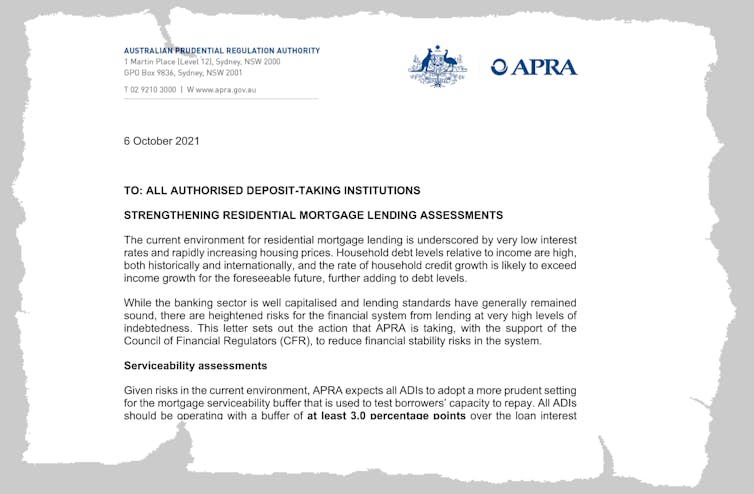Thanks to APRA, it's about to become harder to get a mortgage. Here's why
- Written by Warren Hogan, Industry Professor, University of Technology Sydney

On Wednesday the Australian Prudential Regulation Authority wrote to each of Australia’s home lenders asking them to make it just a little bit harder for Australians to get mortgage.
The letter, addressed to so-called authorised deposit-taking institutions, asked them to adopt a serviceability buffer “at least 3.0 percentage points over the loan interest rate”.
















